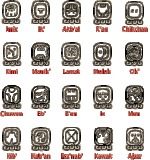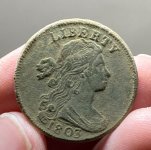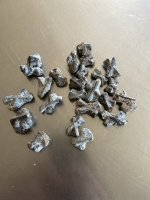Much as I hate to be the stick in the mud...
without context, this is just another ambiguous obscure artefact.
If my house burned down, a recovery might surmise that the Phoenicians hitched a ride with Portuguese and Spanish explorers and brought an Antikythera Device to Melbourne, Australia in the 1st century BC.
this is the difference between treasure hunting and archaeology....
without context, this is just another ambiguous obscure artefact.
If my house burned down, a recovery might surmise that the Phoenicians hitched a ride with Portuguese and Spanish explorers and brought an Antikythera Device to Melbourne, Australia in the 1st century BC.
this is the difference between treasure hunting and archaeology....
Last edited:












